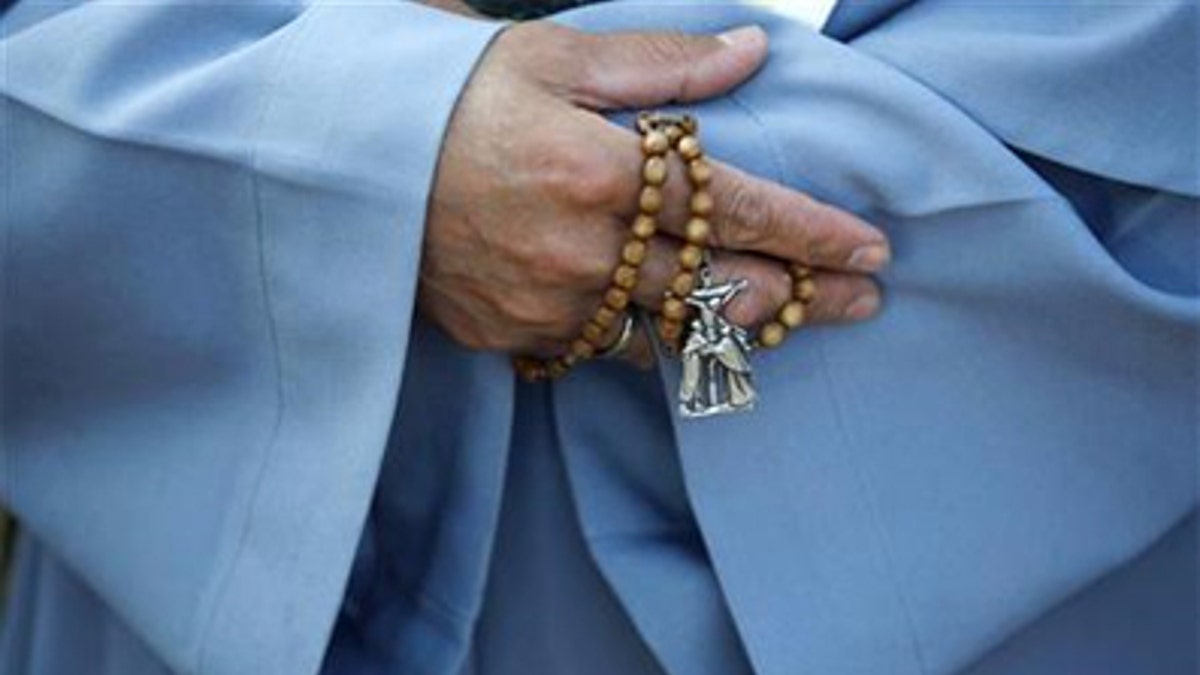
Nuns should be offered the contraceptive pill, on health grounds, since it would cut their risk of getting cancer, according to a study in The Lancet.
The vow of chastity taken by the world's 95,000 Catholic nuns carries with it an increased risk of breast, ovarian and uterine cancers – all of which are more common in women who do not have children.
It is a problem that has been recognized for hundreds of years. In 1713, Italian physician Bernadino Ramazzini reported nuns had extremely high rates of the "accursed pest," breast cancer.
Kara Britt of Monash University and Roger Short of the University of Melbourne, writing in The Lancet medical journal, argued that taking modern contraceptive pills could be one answer.
Lack of pregnancy and lactation means childless women have more menstrual cycles, which increases cancer risk, while those who have children further decrease their risk if they have first babies while young, have several children and breastfeed.
Overall mortality in women using the contraceptive pill is around 12 percent lower than in those who have never used it and the risk of developing ovarian and endometrial cancers falls by 50 to 60 percent, the authors said.
"If the Catholic Church could make the oral contraceptive pill freely available to all its nuns, it would reduce the risk of those accursed pests, cancer of the ovary and uterus, and give nuns' plight the recognition it deserves," the doctors said.
Although the Catholic Church condemns all forms of contraception, barring abstinence, the doctors argued that using the pill might still be possible under regulations on birth control set out by Pope Paul VI in Humanae Vitae in 1968.
This document stated that "the Church in no way regards as unlawful therapeutic means considered necessary to cure organic diseases, even though they also have a contraceptive effect."
Of course, the pill can also carry its own dangers, such as the risk of blood clots with the combined oestrogen-progestogen version, so the suitability of nuns would have to be assessed according to their individual medical histories, the doctors added.
